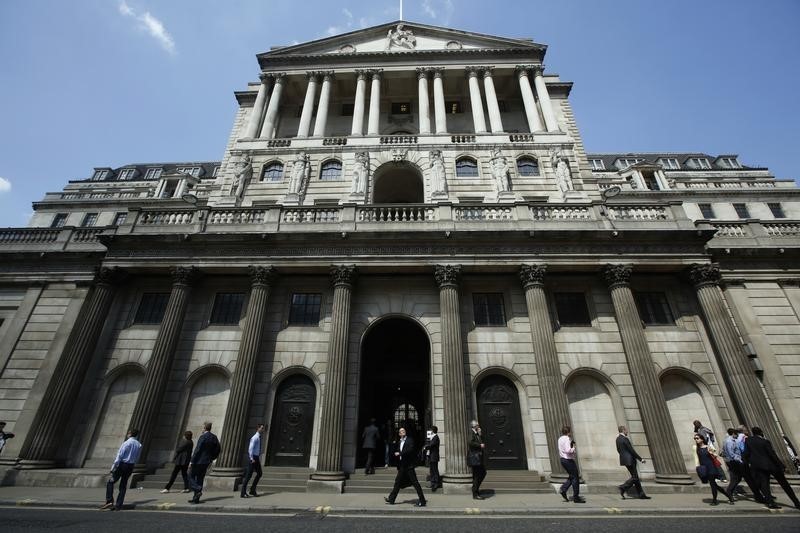(Bloomberg View) -- Last November, the Bank of England raised interest rates for the first time in a decade and then warned there could be more increases to come. The economy was faring better than expected after the Brexit vote. Inflation was well above the bank's 2 percent target, after the depreciation of sterling had pushed up import prices. Officials believed price pressures had to be brought under control.
Reality turned out somewhat differently. On Friday, the data showed that the British economy slowed sharply in the first three months of this year, growing by just 0.1 percent. Prices are showing no signs of overheating: Inflation fell to 2.5 percent in March, down from an earlier peak of 3.1 percent, as the currency effects are fast disappearing. The hurry displayed in November is beginning to look premature.
The bank seems to have made a classic policy mistake: It pressed on the brakes without waiting to see if the acceleration was real. This choice was particularly puzzling given the extreme uncertainty hanging over the British economy on the eve of Brexit. Businesses just don't know what will be the relationship with the EU after Britain leaves the bloc in March 2019: The BOE assumes this will be a friendly separation, but many issues - such as the dispute over the Irish border - remain unresolved.
The bank can point to some factors which still vindicate its choice: Slow growth was partly due to the cold weather. Wages are now rising faster than inflation, which should help to boost consumer spending. But the decision to increase borrowing costs in November has echoes of another round of premature tightening which occurred in Europe this decade: The European Central Bank's choice to raise interest rates twice in 2011, in spite of the euro zone's sovereign debt crisis. The ECB's decision was way more catastrophic, but the faulty logic was similar.
There are signs that governor Mark Carney has realized this risk. Ten days ago, he downplayed the expectation that interest rates could rise again in May. Investors have taken notice: Sterling has fallen sharply since the announcement, and has continued its decline as evidence of the slowdown piled up.
However, Carney's change of mind will only cement his reputation as the "unreliable boyfriend" of the British economy. That was the name he was given in June 2014, when he quashed expectations over an increase in interest rates which he had just helped to build. When facts change, central bankers should change their minds. But every time a central bank governor makes a U-turn, his message becomes less credible and, as a result, less powerful. For the sake of the British economy and of its reputation, the Bank of England could have done with some more patience.
